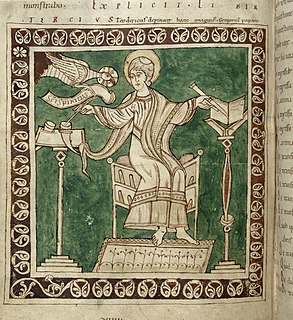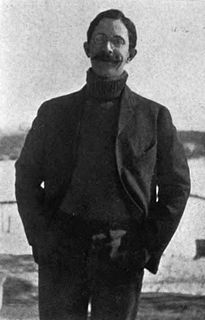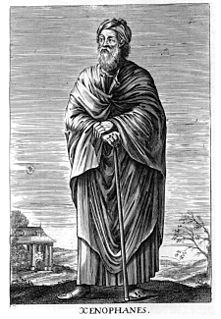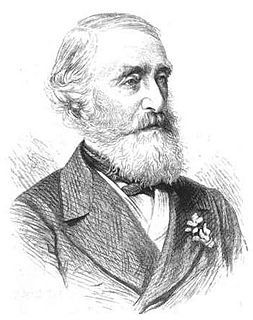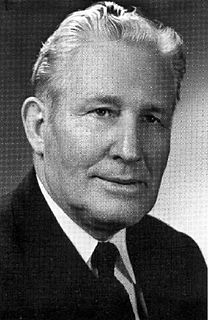Top 1006 Grizzly Bears Quotes & Sayings - Page 17
Explore popular Grizzly Bears quotes.
Last updated on December 22, 2024.
A culture-bearing book, like a mule, bears the culture on its back. No one should sit down to write one deliberately. Culture-bearing books appear almost accidentally, like a sudden surge in the stock market. There are books of high quality that are a part of the culture, but that is not the same. They are a part of it. They aren't carrying it anywhere. They may talk about insanity sympathetically, for example, because that's the standard cultural attitude. But they don't carry any suggestion that insanity might be something other than sickness or degeneracy.
Some meat eaters defend meat eating by pointing out that it is natural: in the wild, animals eat one another. The animals that end up on our breakfast, lunch, and dinner plates, however, aren't those who normally eat other animals. The animals we exploit for food are not the lions and tigers and bears of the world. For the most part, we eat the gentle vegan animals. However, on today's farms, we actually force them to become meat eaters by making them eat feed containing the rendered remains of other animals, which they would never eat in the wild.
We need others for our physical, emotional, and spiritual well-being. Without others we are nothing. Our sense that we are an island, an independent, self-sufficient individual, bears no relation to reality. It is closer to the truth to picture ourself as a cell in the vast body of life, distinct yet intimately bound up with all living beings. We cannot exist without others, and they in turn are affected by everything we do. The idea that it is possible to secure our own welfare while neglecting the welfare of others, or even at the expense of others, is completely unrealistic.
If our Lord ascends up to Heaven, ascend with Him. Be one of those angels who escort Him, or one of those who receive Him. Bid the gates be lifted up (cf. Ps. 24:7, 10), or be made higher, that they may receive Him, exalted after His Passion. Answer to those who are in doubt because He bears up with Him His body and the tokens of His Passion, which He had not when He came down, and who therefore inquire, 'Who is this King of Glory?' that it is the Lord strong and mighty, as in all things that He has done from time to time and does, so now in His battle and triumph for the sake of Mankind.
Obedience is necessary not only for monks, but for all people. Even the Lord was obedient. The proud and self-regarding do not allow grace to live in them, and therefore they never have spiritual peace, while in the obedient soul the grace of the Holy Spirit enters easily and gives joy and peace. Whoever bears even a little grace in himself joyfully submits himself to all direction. He knows that God directs even the heavens and the netherworld, and himself, and his business, and everything in the world, and therefore he is always at peace.
There is more joy in heaven over a converted sinner than over a righteous person standing firm. A leader in battle has more love for a soldier who returns after fleeing, and who valiantly pursues the enemy, than for one who never turned back, but who never acted valiantly either. A farmer has greater love for land which bears fruitfully, after he has cleared it of thorns, than for land which never had thorns but which never yielded a fruitful harvest.
The greatest human virtue bears no proportion to human vanity. We always think ourselves better than we are, and are generally desirous that others should think us still better than we think ourselves. To praise us for actions or dispositions which deserve praise is not to confer a benefit, but to pay a tribute. We have always pretensions to fame which, in our own hearts, we know to be disputable, and which we are desirous to strengthen by a new suffrage; we have always hopes which we suspect to be fallacious, and of which we eagerly snatch at every confirmation.
It never was my thinking that made the big money for me. It always was my sitting. Got that? My sitting tight! It is no trick at all to be right on the market. You always find lots of early bulls in bull markets and early bears in bear markets. I've known many men who were right at exactly the right time, and began buying or selling stocks when prices were at the very level which should show the greatest profit. And their experience invariably matched mine--that is, they made no real money out of it. Men who can both be right and sit tight are uncommon.
We have restricted humans from giving 'free' food to bears and dolphins because we know that such feeding would make them dependent and lead to their extinction. But when it comes to our own species, we have difficulty seeing the connection between short-term kindness and long-term cruelty; we give women money to have more children, making them more dependent with each child and discouraging them from developing the tools to fend for themselves. The real discrimination against women, then, is 'free feeding'.
I consider myself a progressive, so my answer would be that we need to be progressive. For some reason the people in power in Mississippi still seem to be invested in these very American myths."The individual is alone." "We pull ourselves up by our bootstraps." "We create success for ourselves, and if we work hard enough then we will succeed and have success beyond our wildest dreams." I think that we need to do away with that kind of thinking and be more aware of history and how the history of this place bears in the present and how it affects people.
Are there bears in these mountains?" he asked. His companion nodded. "Of course. But it's a bit early in the year for them to be moving around. Why?" Halt let go a long breath. "Just a vague hope, really. There's a chance that when the Temujai here you crashing around in the trees, they might think you're a bear." Erak smiled, with his mouth only. His eyes were as cold as the snow. "You're a very amusing fellow," he told Halt. "I'd like to brain you with my ax one of these days." "If you could manage to do it quietly, I'd almost welcome it," Halt said.
O you, who in some pretty boat, Eager to listen, have been following Behind my ship, that singing sails along Turn back to look again upon your own shores; Tempt not the deep, lest unawares, In losing me, you yourselves might be lost. The sea I sail has never yet been passed; Minerva breathes, and pilots me Apollo, And Muses nine point out to me the Bears. You other few who have neck uplifted Betimes to the bread of angels upon Which one lives and does not grow sated, Well may you launch your vessel Upon the deep sea.
There is one god, greatest among gods and men, who bears no similarity to humans either in shape or thought... but humans believe that the gods are born like themselves, and that the gods wear clothes and have bodies like humans and speak in the same way... but if cows and horses or lions had hands or could draw with the hands and manufacture the things humans can make, then horses would draw the forms of gods like horses, cows like cows, and they would make the gods' bodies resemble those which each kind of animal had itself.
All that the posture of skepticism accomplishes is to freeze the ego in an ignorantist poverty that never stretches or diversifies its resources of imagination or understanding. Any uncultured cretin can close his eyes and try to reduce the issues down to linear simplisms and say, "I am doubting, I am proving my magisterial or sovereign control over my own mind." Doubt is a useful and significant test of one's critical powers, but by itself it bears little if any significant cultural charge of enlightenment or satori; indeed it is the very opposite kind of thing.
Assurance grows by repeated conflict, by our repeated experimental proof of the Lord's power and goodness to save; when we have been brought very low and helped, sorely wounded and healed, cast down and raised again, have given up all hope, and been suddenly snatched from danger, and placed in safety; and when these things have been repeated to us and in us a thousand times over, we begin to learn to trust simply to the word and power of God, beyond and against appearances: and this trust, when habitual and strong, bears the name of assurance; for even assurance has degrees.
It is very remarkable that while the words Eternal, Eternity, Forever, are constantly in our mouths, and applied without hesitation, we yet experience considerable difficulty in contemplating any definite term which bears a very large proportion to the brief cycles of our petty chronicles. There are many minds that would not for an instant doubt the God of Nature to have existed from all Eternity, and would yet reject as preposterous the idea of going back a million of years in the History of His Works. Yet what is a million, or a million million, of solar revolutions to an Eternity?
Enjoy the blessing of strength while you have it and do not bewail it when it is gone, unless, forsooth, you believe that youth must lament the loss of infancy, or early manhood the passing of youth. Life's race-course is fixed; Nature has only a single path and that path is run but once, and to each stage of existence has been allotted its own appropriate quality; so that the weakness of childhood, the impetuosity of youth, the seriousness of middle life, the maturity of old age.. each bears some of Nature's fruit, which must be garnered in its own season.
Said one oyster to a neighboring oyster, "I have a very great pain within me. It is heavy and round and I am in distress." And the other oyster replied with haughty complacence, "Praise be to the heavens and to the sea, I have no pain within me. I am well and whole both within and without." At that moment a crab was passing by and heard the two oysters, and he said to the one who was well and whole both within and without, "Yes, you are well and whole; but the pain that your neighbor bears is a pearl of exceeding beauty."
The strongest statement ever made about women's rights appears on page one of the Bible. God's first words about his daughters established an indestructible foundation for women's rights because God anchored those rights in himself. By creating his daughters along with his sons in his image and likeness, God elevated every human being to the highest possible rank. Which means any mistreatment - verbal, emotional, or physical - of any woman or girl amounts to defacement of God himself, for she bears his image.
Poetry is related to philosophy as experience is related to empirical science. Experience makes us acquainted with the phenomenon in the particular and by means of examples, science embraces the whole of phenomena by means of general conceptions. So poetry seeks to make us acquainted with the Platonic Ideas through the particular and by means of examples. Philosophy aims at teaching, as a whole and in general, the inner nature of things which expresses itself in these. One sees even here that poetry bears more the character of youth, philosophy that of old age.
Few stories are written about what happens to the princess after the wedding. Reading between the lines of other stories, we can sketch out her "happily ever after": The princess gets pregnant and hopes for sons. As long as she is faithful and bears sons, she is considered to be a good wife. We don't hear whether or not she's a good mother, unless something goes wrong with her children.... All of history has been written about the subsequent adventures in the chapters of his life.
ought we not, from time to time, open ourselves up to cosmic sadness? ... Give your sorrow all the space and shelter in yourself that is its due, for if everyone bears his grief honestly and courageously, the sorrow that now fills the world will abate. But if you do not clear a decent shelter for your sorrow, and instead reserve most of the space inside you for hatred and thoughts of revenge-from which new sorrows will be born for others-then sorrow will never cease in this world and will multiply.
The Spirit of God bears no witness to Christless sermons. Leave Jesus out of your preaching, and the Holy Spirit will never come upon you. Why should he? Has he not come on purpose that he may testify of Christ? Did not Jesus say, ‘He shall glorify me: for he shall receive of mine, and shall show it unto you’? Yes, the subject was Christ, and nothing but Christ, and such is the teaching which the Spirit of God will own. Be it ours never to wander from this central point: may we determine to know nothing among men but Christ and his cross.
If God wishes to be born as man and to unite mankind in the fellowship of the Holy Ghost, He suffers the terrible torment of having to bear the world in its reality. It is a crux; indeed, He Himself is His own cross. The world is God's suffering, and every individual human being who wishes even to approach his own wholeness knows very well that this means bearing his own cross. But the eternal promise for him who bears his own cross is the Paraclete.
Prophecy and history predict and record a great and universal apostasy which was to be followed by a restoration as predicted by John in Revelation. The fact of the great apostasy is attested by both sacred and secular writ, and history bears witness that it became universal. We proclaim this fact of history not as an attack on any church. We do not assume any position of "holier than thou" or "wiser than thou," but we announce this historic fact of the apostasy as a vindication of the claim that there has been in fact a restoration of the gospel.
Our country, customs, laws, our ambitions, and our notions of fit and fair-all these we never made; we found them ready-made; we but quote from them. What would remain to me if this art of appropriation were derogatory to genius? Every one of my writings has been furnished to me by a thousand different persons, a thousand things; wise and foolish have brought me, without suspecting it, the offering of their thoughts, faculties, and experience. My work is an aggregation of beings taken from the whole of nature. It bears the name of Goethe.
Bears are made of the same dust as we, and they breathe the same winds and drink of the same waters. A bear's days are warmed by the same sun, his dwellings are overdomed by the same blue sky, and his life turns and ebbs with heart pulsing like ours. He was poured from the same first fountain. And whether he at last goes to our stingy Heaven or not, he has terrestrial immortality. His life, not long, not short, knows no beginning , no ending. To him life unstinted, unplanned, is above the accidents of time, and his years, markless and boundless, equal eternity.
To emancipate woman is to refuse to confine her to the relations she bears to man, not to deny them to her; let her have her independent existence and she will continue nonetheless to exist for him also: mutually recognising each other as subject, each will yet remain for the other an other...when we abolish the slavery of half of humanity, together with the whole system of hypocrisy that it implies, then the 'division' of humanity will reveal its genuine significance and the human couple will find its true form.
The Lord is near! You're not alone. You may feel alone. You may think you're alone. But there's never a moment in which you face life without help. God is near. God repeatedly pledges his proverbial presence to his people. Don't assume God is watching from a distance. Avoid the quicksand that bears the marker "God has left you!" Don't indulge this lie. If you do, your problem will be amplified by a sense of loneliness. It's one thing to face a challenge, but to face it all alone? Isolation creates a downward cycle of fret.
A certain critic -- for such men, I regret to say, do exist -- made the nasty remark about my last novel that it contained 'all the old Wodehouse characters under different names.' He has probably by now been eaten by bears, like the children who made mock of the prophet Elisha: but if he still survives he will not be able to make a similar charge against Summer Lightning. With my superior intelligence, I have out-generalled the man this time by putting in all the old Wodehouse characters under the same names. Pretty silly it will make him feel, I rather fancy.
I am obsessed by the idea of silence. I went through an entire library studying art, artists and their critics, philosophers, too, on the meaning and significance of the color white. I dreamed of white birds and white bears. I thought about the white pages of my mother's journals. I became enthralled with John Cage and his work, 4'33”, his masterpiece of ambient sound. Rauschenberg, too. And then at some point I let go. What sticks to the soul is what gets placed on the page. Maybe that's the unknown part, the mystery, the power of the empty page.
No general description of the mode of advance of human knowledge can be just which leaves out of account the social aspect of knowledge. That is of its very essence. What a thing society is! The workingman, with his trade union, knows that. Men and women moving in polite society understand it, still better. But Bohemians, like me, whose work is done in solitude, are apt to forget that not only is a man as a whole little better than a brute in solitude, but also that everything that bears any important meaning to him must receive its interpretation from social considerations.
King Henry: But what a point, my lord, your falcon made, And what a pitch she flew above the rest! To see how God in all his creatures works! Yea, man and birds are fain of climbing high. Suffolk: No marvel, an it like your majesty, My lord protectors hawks do tower so well; They know their masters loves to be aloft, And bears his thoughts above his falcon's pitch. Gloucester: My lord, 'tis but a base ignoble mind That mounts no higher than a bird can soar.
It was a splendid population - for all the slow, sleepy, sluggish-brained sloths stayed at home - you never find that sort of people among pioneers - you cannot build pioneers out of that sort of material. It was that population that gave to California a name for getting up astounding enterprises and rushing them through with a magnificent dash and daring and a recklessness of cost or consequences, which she bears unto this day - and when she projects a new surprise the grave world smiles as usual and says, "Well, that is California all over.
We live, understandably enough, with the sense of urgency; our clock, like Baudelaire's, has had the hands removed and bears the legend, "It is later than you think." But with us it is always a little too late for mind, yet never too late for honest stupidity; always a little too late for understanding, never too late for righteous, bewildered wrath; always too late for thought, never too late for naïve moralizing. We seem to like to condemn our finest but not our worst qualities by pitting them against the exigency of time.
Mother of Rome, delight of Gods and men,
Dear Venus that beneath the gliding stars
Makest to teem the many-voyaged main
And fruitful lands- for all of living things
Through thee alone are evermore conceived,
Through thee are risen to visit the great sun-
Before thee, Goddess, and thy coming on,
Flee stormy wind and massy cloud away,
For thee the daedal Earth bears scented flowers,
For thee waters of the unvexed deep
Smile, and the hollows of the serene sky
Glow with diffused radiance for thee!
I was born Feb. 12, 1809, in Hardin County, Kentucky. My parents were both born in Virginia, of undistinguished families--second families, perhaps I should say. My mother, who died in my tenth year, was of a family of the name of Hanks.... My father ... removed from Kentucky to ... Indiana, in my eighth year.... It was a wild region, with many bears and other wild animals still in the woods. There I grew up.... Of course when I came of age I did not know much. Still somehow, I could read, write, and cipher ... but that was all.
It is better to allow our lives to speak for us than our words. God did not bear the cross only two thousand years ago. He bears it today, and he dies and is resurrected from day to day. It would be a poor comfort to the world if it had to depend on a historical God who died two thousand years ago. Do not, then, preach the God of history, but show him as he lives today through you.
Only common mortals like the Somervilles have good old rotten hates, dear,' said her mother. 'Sir Graham manages to love everybody and wouldn't know what you're talking about. Have a bun.' 'He doesn't love the Turks,' said Philippa. 'He kills them.' 'That isn't hate,' said Kate Somerville. 'That's simply hoeing among one's principles to keep them healthy and neat. I'm sure he would tell you he bears them no personal grudge; and they think they're going to Paradise anyway, so it does everyone good.
Some days you go bear hunting and you get eaten. Some days you come home with a nice rug to roll around on, and bear steaks. What they don't tell you as a kid is that sometimes you get the rug and steaks, but you also get some nice scars to go with them. As a child you don't understand that you can win, but that's it's not always worth the price. Once you understand and accept that possibility you become a real grown up, and the world becomes a much more serious place. Not less fun, but once you realize what can go wrong, it's a lot scarier to go hunting "bears".
But merely accepting authoritarian truth, even if that truth has some virtue, does not bring skepticism to an end. To blindly accept a truth one has never reflected upon retards the advance of reason. Our world rots in deceit. . . . Just as a tree bears the same fruit year after year and at the same time fruit that is new each year, so must all permanently valuable ideas be continually created anew in thought. But our age pretends to make a sterile tree bear fruit by tying fruits of truth onto its branches.
Let me not to the marriage of true minds
Admit impediments. Love is not love
Which alters when it alteration finds,
Or bends with the remover to remove:
O no! it is an ever-fixed mark
That looks on tempests and is never shaken;
It is the star to every wandering bark,
Whose worth's unknown, although his height be taken.
Love's not Time's fool, though rosy lips and cheeks
Within his bending sickle's compass come:
Love alters not with his brief hours and weeks,
But bears it out even to the edge of doom.
If this be error and upon me proved,
I never writ, nor no man ever loved.
Man ever talks, and Man ever dreams Of better days that are yet to be, After glittering goal, that distant gleams, Running and racing untiringly. The worldly may grow old and young as it will, But the Hope of man is Improvement still. Hope bears him into life in her arms, She flutters around the boy's young bloom, The soul of youth with her magic warms, Nor rests with age in the silent tomb; For ends man his weary course at the grave, There plants he Hope o'er his ashes to wave.
I think most generations tend to learn the lesson of war the hard way. There is a deep attraction to the empowerment. Freud is right: societies either become locked in a collective embrace of Eros, as individuals do, or a collective embrace of Thanatos, the death instinct. They swing between the two. The notion that societies are naturally prone toward self-preservation is wrong. Self-annihilation can be deeply addictive, intoxicating, enticing. So I take a darker view of human nature, that war is probably always going to be with us. I think history bears me out.
I have seen salmon swimming upstream to spawn even with their eyes pecked out. Even as they are dying, as their flesh is falling away from their spines, I have seen salmon fighting to protect their nests. I have seen them push up creeks so small that they rammed themselves across the gravel. I have seen them swim upstream with huge chunks bitten out of their bodies by bears. Salmon are incredibly driven to spawn. They will not give up. This gives me hope.






